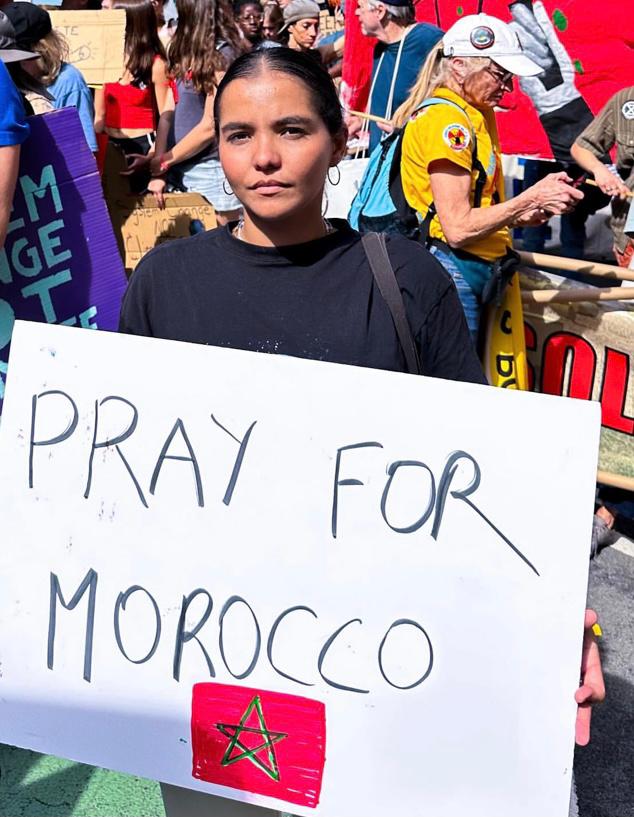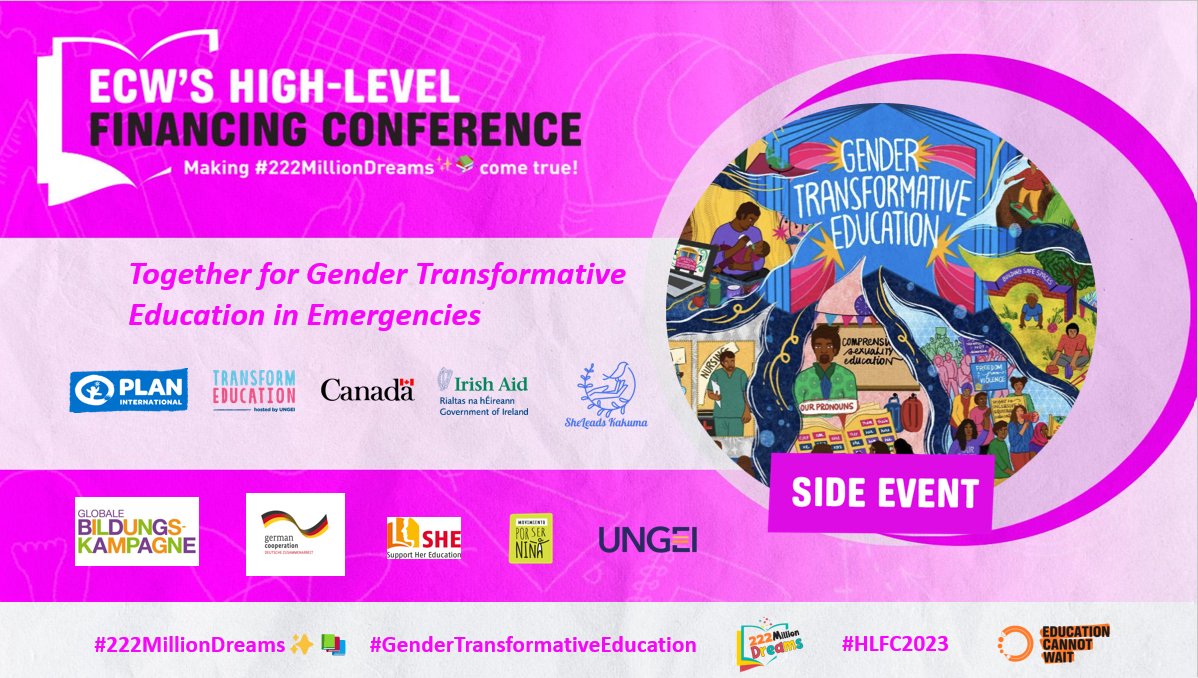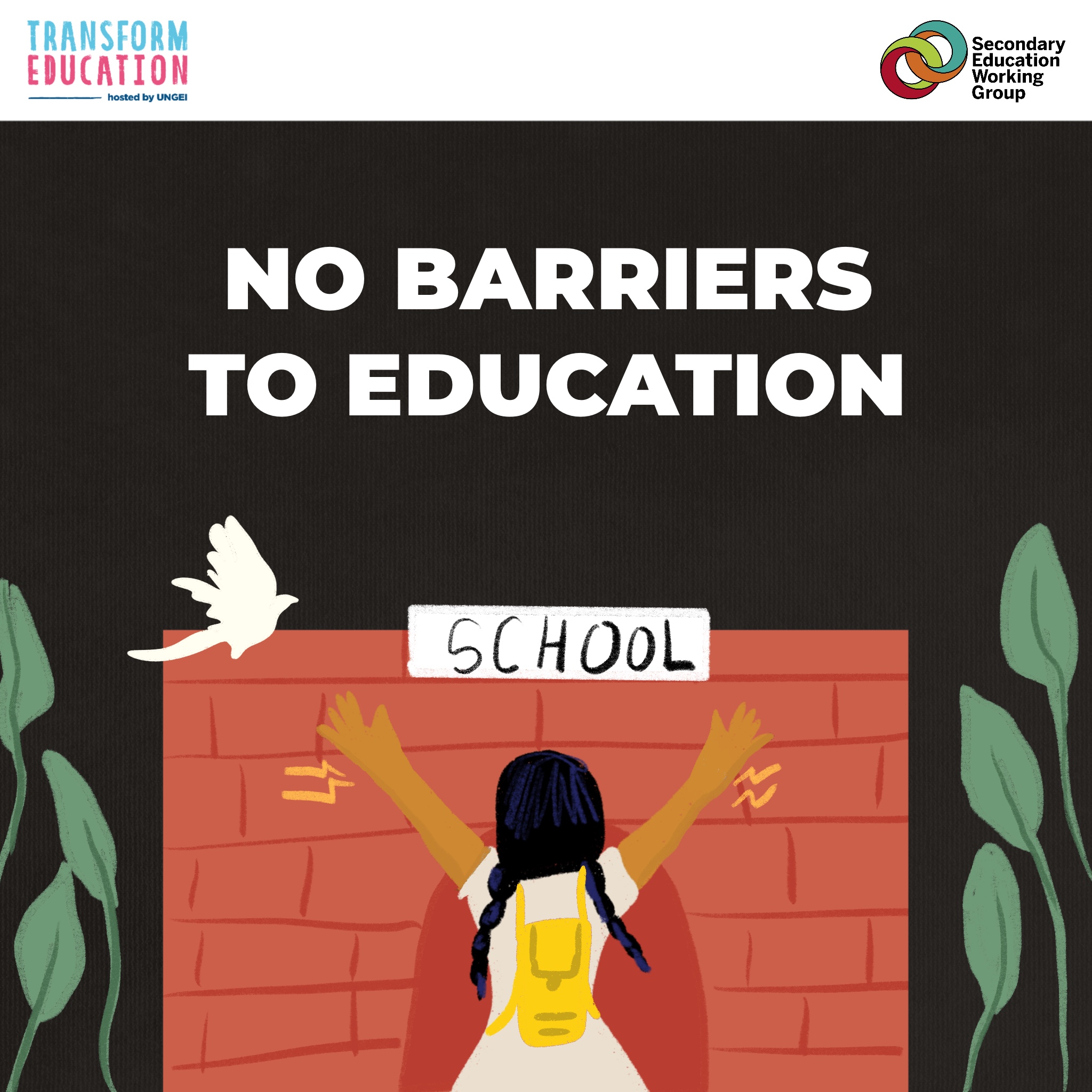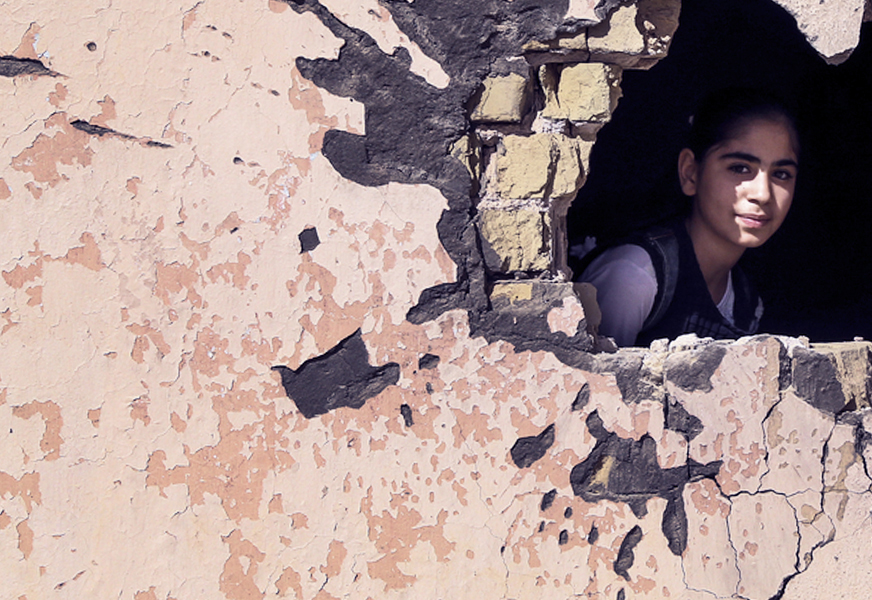As a young Moroccan woman, founder of Politics4Her, and a passionate advocate for gender equality, I am deeply troubled by the aftermath of the devastating earthquake that struck my home country. Reports are horrifying, as this disaster affected 300,000 people, including 100,000 children according to UNICEF, while taking the lives of 2,900 people and injuring more than 5,000. This disaster has shaken not only our physical foundations but has also exposed the fragile state of gender equality, comprehensive sexuality education (CSE), sexual and reproductive health and rights (SRHR), and the ongoing challenges related to gender-based violence (GBV) and period poverty in our nation.
Morocco has always been a place where the strength and resilience of women and girls have shone brightly, even in the most challenging circumstances. However, the earthquake has cast a long shadow on their ability to pursue education with 580 schools destroyed and access to essential services, including maternal and menstrual care, severely limited, undermining their potential to lead and thrive. The impact of this disaster on indigenous communities in rural remote areas is a stark reminder that we must take an intersectional feminist approach to recovery, addressing not only the immediate needs but also the long-term empowerment of these vulnerable communities.
 The earthquake's aftermath has also exposed women and girls to grave dangers, including increased threats of forced labor, forced marriage, and human trafficking, as predatory men and gangs exploit the increased vulnerability of communities following the disaster. These perilous circumstances create compounded threats to the lives of girls and women. As these serious dangers become more widespread, they create even more significant barriers to education, pushing those impacted further into vulnerability. Forced labor and trafficking rob young girls of their innocence, their dreams, and their opportunities for learning. Forced marriages, often driven by desperation, disrupt their education, perpetuating cycles of inequality. As organizations advocate for the restoration of education, we must also address and eradicate these grave violations of their rights, ensuring that girls can learn, grow, and pursue their aspirations in safety and freedom.
The earthquake's aftermath has also exposed women and girls to grave dangers, including increased threats of forced labor, forced marriage, and human trafficking, as predatory men and gangs exploit the increased vulnerability of communities following the disaster. These perilous circumstances create compounded threats to the lives of girls and women. As these serious dangers become more widespread, they create even more significant barriers to education, pushing those impacted further into vulnerability. Forced labor and trafficking rob young girls of their innocence, their dreams, and their opportunities for learning. Forced marriages, often driven by desperation, disrupt their education, perpetuating cycles of inequality. As organizations advocate for the restoration of education, we must also address and eradicate these grave violations of their rights, ensuring that girls can learn, grow, and pursue their aspirations in safety and freedom.
Education is the key to building empowerment and resilience, and it is imperative that we prioritize its restoration in the earthquake-affected regions. Our approach must extend beyond traditional education to encompass a comprehensive and inclusive understanding of empowerment. Our experience at Politics4Her has shown us the alarming lack of a gender-responsive approach in the wake of this disaster. While rebuilding infrastructure is crucial, rebuilding lives and dreams requires a comprehensive strategy that prioritizes the rights, safety, and well-being of women and girls.
To that end, we advocate for:
- Rebuilding Inclusive Schools: Schools should not only be reconstructed but transformed into safe and inclusive spaces where girls and young women can access quality education, free from discrimination and violence. These schools must serve as the foundation for our collective resilience and progress.
- Comprehensive Sexuality Education (CSE): Our work at Politics4Her has emphasized the critical importance of CSE in empowering girls with knowledge and agency. We must ensure that earthquake-affected girls receive CSE that equips them with the tools to make informed choices about their bodies and relationships.
- Sexual and Reproductive Health and Rights (SRHR): Access to SRHR services is a fundamental right, and the earthquake should not deprive women and girls of these services. We call for the immediate provision of SRHR services to safeguard maternal and reproductive health.
- Preventing Gender-Based Violence (GBV): GBV is an ongoing crisis that has been further exacerbated by the earthquake. It is imperative that we establish comprehensive GBV prevention and response mechanisms, offering support, protection, and justice.
- Period Poverty and Menstrual Precariousness: Addressing period poverty is an essential aspect of women's dignity and empowerment. We urge the distribution of menstrual hygiene products and menstrual hygiene education to ensure menstrual dignity.
- Psychological Services: Recognizing the trauma experienced by those who have lost their families and homes, we advocate for accessible psychological services. Gender sensitive trauma-informed care can help women and girls cope with their experiences and rebuild their lives.
- Community Engagement: As a Moroccan, I have witnessed the solidarity and resilience of our communities. Engaging local communities, particularly women and girls, in decision-making and recovery processes is vital to ensure that solutions are tailored to their unique needs.
- Economic Empowerment: Recognizing the economic vulnerabilities that women face, we advocate for programs that provide economic opportunities and skills training. Economic empowerment is a pathway to greater resilience and independence.
The earthquake has tested our resilience, but it also forces us to reaffirm our commitment to education, gender equality and women's empowerment. I am convinced that a gender-sensitive approach including gender-transformative education is not only the right thing to do but also the most effective way to rebuild our nation. Together, let us stand in solidarity with the earthquake-affected communities, especially the women and girls who are the backbone of our society. Let us rebuild not only our physical infrastructure but also the dreams and aspirations of those who are most vulnerable. By doing so, we create a Morocco where women and girls can thrive and lead, making our nation stronger and more resilient than ever before.



 English
English العربية
العربية Български
Български Hrvatski
Hrvatski Čeština
Čeština Dansk
Dansk Nederlands
Nederlands Suomi
Suomi Français
Français Deutsch
Deutsch Ελληνικά
Ελληνικά हिन्दी
हिन्दी Italiano
Italiano Română
Română Русский
Русский Español
Español Maltese
Maltese Zulu
Zulu አማርኛ
አማርኛ